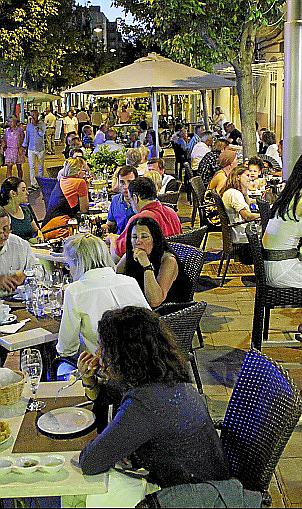From now on, there will be a limit of three bars/restaurants in a 50-metre radius of an establishment that is already open on pedestrianised streets of Palma. The deputy mayor for urban planning and the model of the city, Antoni Noguera, has presented an amendment to the city's general plan by which there will be regulation of pedestrian areas and so-called "civic axis" areas.
This will apply to streets such as Fabrica and Blanquerna, but Noguera stresses that the measure will not be retroactive and so will not affect establishments which are already open. He considers this new regulation to be one of the most important to be adopted by the current town hall administration and that it is in response to a longstanding demand by residents and also restaurant owners to bring order.
He explains that the civic axes are zones of co-existence where pedestrians are given more space and which are focused on small traders (shops principally). This, he says, is a modern means for "city sustainability", which has been prejudiced through lack of regulation.
The plan's amendment will therefore regulate general economic activity in order to avoid there being a "monoculture" of bars and restaurants and to ensure co-existence and remove the potential for conflict. He points to the examples of sa Llonja, Canamunt and sa Gerreria, which have been pedestrianised but have become areas of conflict because of noise.
The city's director for urban planning, Biel Horrach, adds that Palma has been learning from the experiences of other cities, such as Barcelona, where such a plan already exists.


No comments
To be able to write a comment, you have to be registered and logged in
Currently there are no comments.